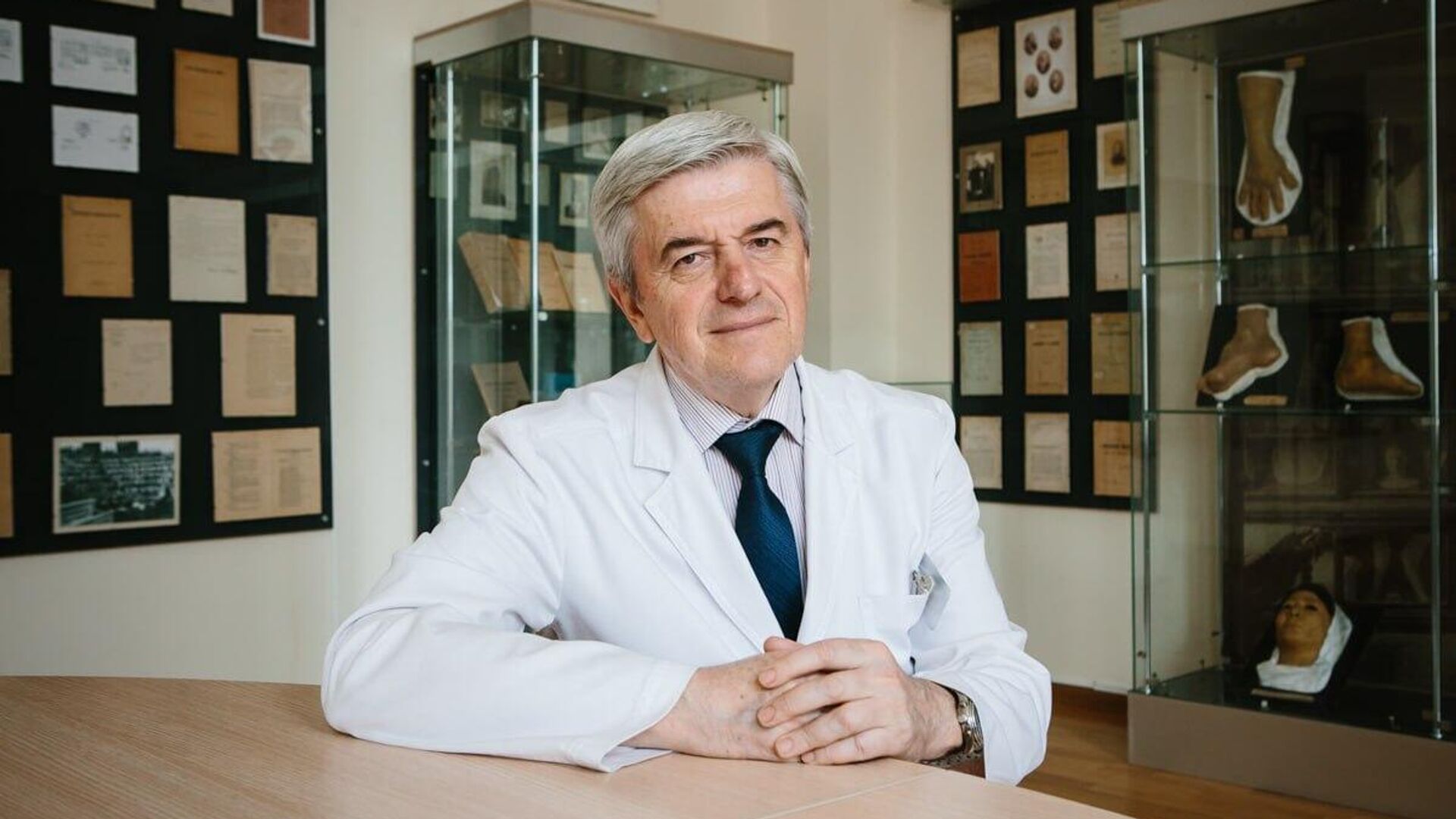https://en.sputniknews.africahttps://t.me/sputnik_africa/49122
Alzheimer’s: Early Clues and Hope for the Future
Alzheimer’s: Early Clues and Hope for the Future
Sputnik Africa
What is known today about the most common neurodegenerative disease — Alzheimer's disease? Have we learned to diagnose it before the first symptoms appear?.. 18.08.2025, Sputnik Africa
2025-08-18T10:36+0200
2025-08-18T10:36+0200
2025-08-18T11:10+0200
sputnik africa
opinion
moscow
africa insight
research
science
health
healthcare
medicine
disease
https://cdn1.img.sputniknews.africa/img/07e9/08/12/1077142086_0:63:1200:738_1920x0_80_0_0_1a146feb5931627c9ac6fa173fdfbb06.jpg
Alzheimer’s: Early Clues and Hope for the FutureHe noted that the disease often develops silently for 10–20 years, but modern science already allows early detection through biomarkers in cerebrospinal fluid — and soon, even blood tests.Lifestyle still plays a decisive role, according to the doctor.There is also progress in treatment. “New drugs, lecanemab and donanemab, show real results — they can delay the progression of Alzheimer’s by two to three years.” While the disease remains incurable, patients today can extend years of meaningful, creative life, the Russian doctor stressed.
moscow
Sputnik Africa
feedback@sputniknews.com
+74956456601
MIA „Rossiya Segodnya“
2025
News
en_EN
Sputnik Africa
feedback@sputniknews.com
+74956456601
MIA „Rossiya Segodnya“
Sputnik Africa
feedback@sputniknews.com
+74956456601
MIA „Rossiya Segodnya“
sputnik africa, moscow, africa insight, research, science, health, healthcare, medicine, disease, alzheimer's disease
sputnik africa, moscow, africa insight, research, science, health, healthcare, medicine, disease, alzheimer's disease
Alzheimer’s: Early Clues and Hope for the Future
10:36 18.08.2025 (Updated: 11:10 18.08.2025) Kirill Kurevlev
Managing Editor
What is known today about the most common neurodegenerative disease — Alzheimer's disease? Have we learned to diagnose it before the first symptoms appear? What help can be offered to such patients? What can we do ourselves to avoid such manifestations? Will we learn to completely cure this pathology?
Alzheimer’s: Early Clues and Hope for the Future
“Forgetfulness after stress is not Alzheimer’s,” Professor Vladimir Parfenov, MD, Head of the Department of Nervous Diseases and Neurosurgery at the First Moscow State Medical University named after I.M. Sechenov, told Sputnik. “The key symptom is losing track of recent events while memories of the distant past remain intact.”
He noted that the disease often develops silently for 10–20 years, but modern science already allows early detection through biomarkers in cerebrospinal fluid — and soon, even blood tests.
Lifestyle still plays a decisive role, according to the doctor.
“Regular physical activity, intellectual work, control of blood pressure, sugar, cholesterol and sleep — all this can significantly slow cognitive decline,” Parfenov said.
There is also progress in treatment. “New drugs, lecanemab and donanemab, show real results — they can delay the progression of Alzheimer’s by two to three years.”
While the disease remains incurable, patients today can extend years of meaningful, creative life, the Russian doctor stressed.

